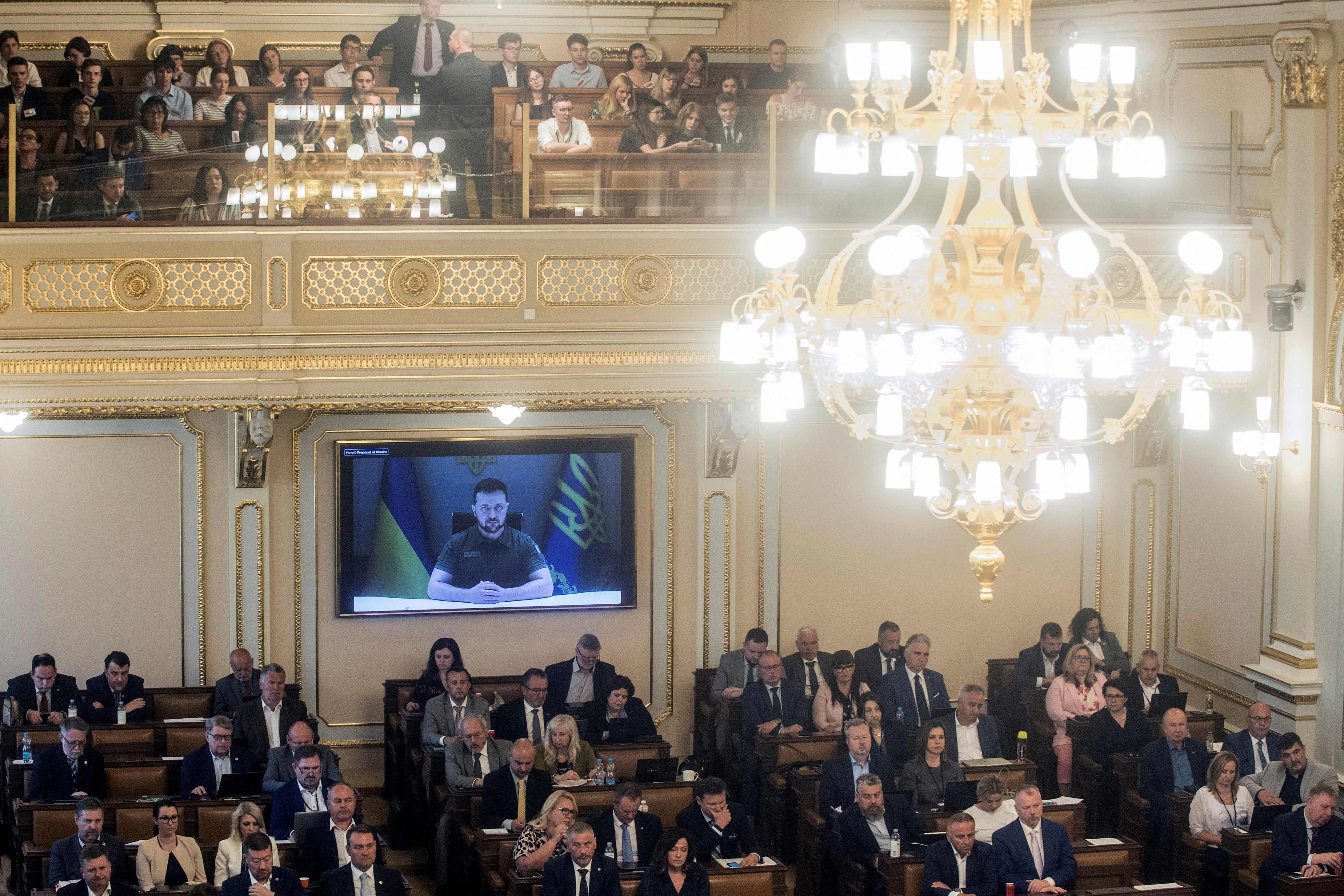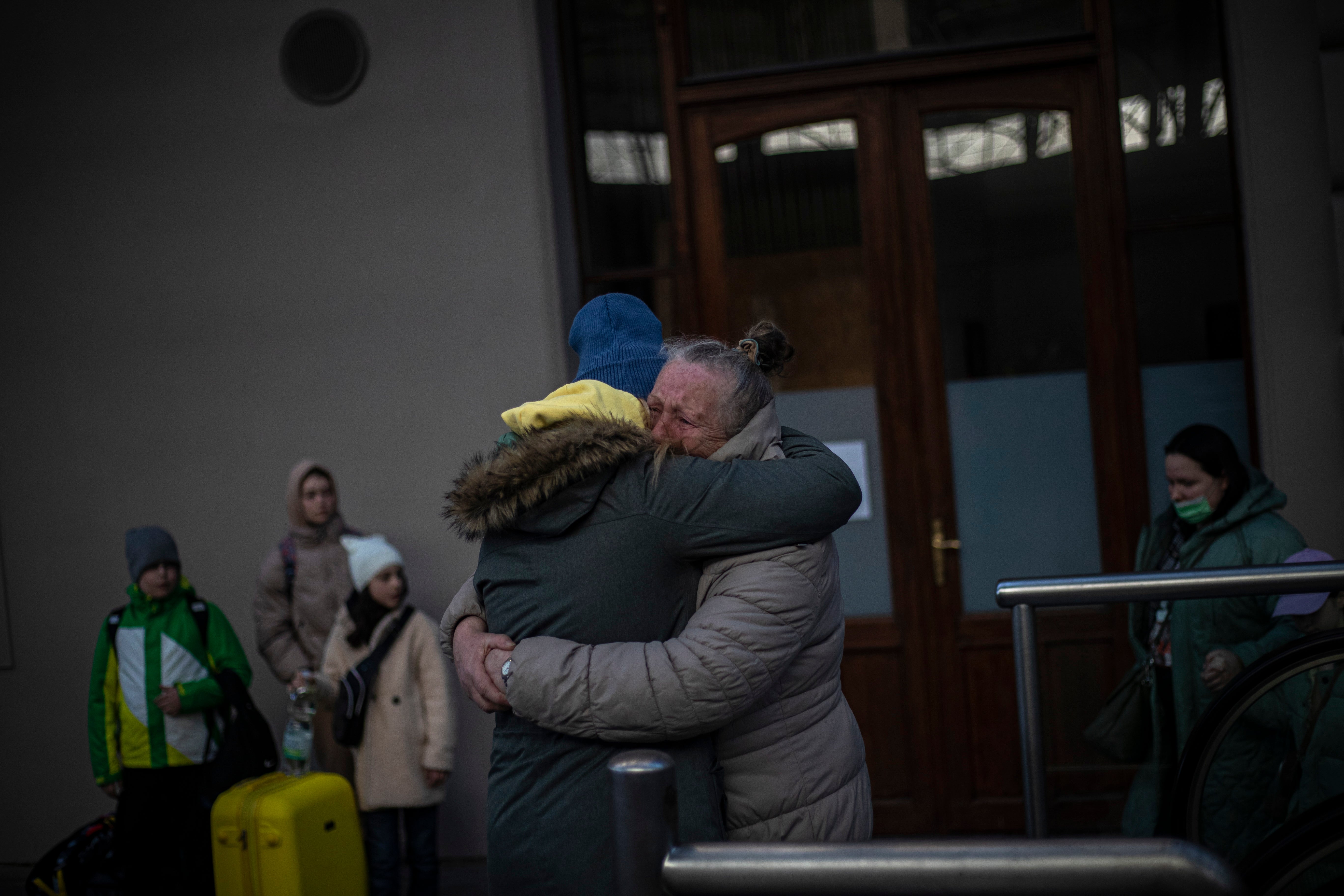Prague closes the door to more Ukrainian refugees because of overcrowding fears
Mayor says he cannot allow more Ukrainians into the city because of a ‘duty not to allow the inhabitants of Prague to run out of places in schools or with doctors’

A short walk through the streets of Prague is all it takes to realise the extent of the Czech capital’s help for refugees fleeing war in Ukraine.
In just under four months, the social fabric of this metropolitan city has changed. Ukrainian is now probably the most commonly heard language after Czech, and signs of Ukraine’s struggle are ever-present in yellow-and-blue flags lining city streets and flying from public buildings.
Yet now, Prague is closing to refugees. City authorities have long complained about the concentration of refugees in the capital compared with other parts of the country, and at midnight on Wednesday, the city’s processing centre for new arrivals shut its doors.
Prague mayor Zdenek Hrib said he could not allow the arrival of more Ukrainians because he has a “duty not to allow the inhabitants of Prague to run out of places in schools or with doctors, and to have nowhere to live”.
Hrib claims the capital is hosting four times more refugees per capita than other Czech regions, with its refugee centre handling close to 100,000 refugees since the start of the war. The country has accepted more than 340,000.
Prague, a city of 1.3 million, has been warning about overcrowding for weeks as uncertainty grows about the long-term impacts of the crisis. Education is the biggest worry; some feared a sign of things to come when a school near Prague recently began prioritising places for Ukrainian children over Czechs.
Aneta Lednova, a spokesperson for the Czech Education Ministry, told The Independent that precise numbers of Ukrainian school-age children were impossible to gauge because “the number is constantly changing depending on families’ arrival or departure from the Czech Republic”.
“In the new school year (starting in September), school attendance will be compulsory for all Ukrainian children, and Ukrainian children attending school will have the same rights as Czech children,” she confirmed.

But no one knows how many Ukrainian children will enrol in Czech schools – or how the education system would cope with the sudden addition of tens or even hundreds of thousands of new pupils when the new academic year begins.
The uncertainty compounds a tight squeeze on accommodation that led to the construction of a tent camp in Prague mostly used to house Roma refugees whom the city authorities claim are in many cases not eligible to receive state aid.
The situation isn’t helped by the impossibility of predicting how many refugees will stay in the long term. In late May, interior minister Vít Rakusan tried to calm nerves by claiming 1,000 refugees a day were leaving the Czech Republic to return home to Ukraine.
But speaking to The Independent, Ondrej Kratoska from the Interior Ministry confirmed that the authorities have very little idea about the real number of refugees staying or going.
“A lot of them may be returning home to check on their belongings, to see whether their houses have been destroyed,” he said. “Once they have a visa here, they can move around as they please.”
The ministry’s assessment seems to accurately reflect the reality of the situation in Prague.
A Russian IT professional who opened his home to Ukrainian refugees told The Independent that the family who stayed with him have returned to Kyiv as “it seems to be relatively calm there”, but that “they may return” in future.
According to Kratoska, the fluidity of the situation is compounded by the lack of checks at the Czech border resulting from EU free movement. While this allows Ukrainians to act quickly as they anxiously follow the development of the war back home, it also means Prague can’t be sure that it won’t face a meltdown in public services and infrastructure in the coming months.
The capital’s resultant rejection of more refugees moves the Czech Republic into a new phase in dealing with the crisis, with more Ukrainians set to arrive in other towns and villages.
This poses new dangers. Prague is far and away the most welcoming part of the Czech Republic for Ukrainians, and the most supportive of the Ukrainian war effort. The city itself was invaded by Soviet, mostly Russian, troops in 1968 at the time of the Prague Spring, when the Czechs sought a degree of freedom from the dead hand of the USSR during the Cold War.

But, especially in more rural areas, the possible arrival of a wave of refugees tends to be met with grimaces of trepidation rather than sympathy – and many Czechs are already of the opinion that help should not be provided indefinitely to those displaced by the war.
As the west struggles to keep its support for Ukraine at full throttle as a protracted war looms, a swing in public opinion against refugees driven by more conservative sections of the Czech population wouldn’t help the cause.






Join our commenting forum
Join thought-provoking conversations, follow other Independent readers and see their replies
Comments